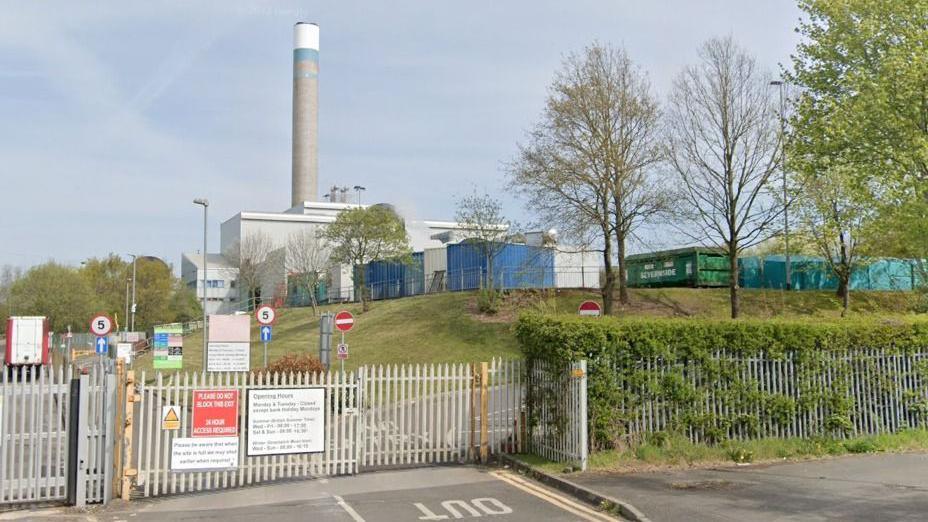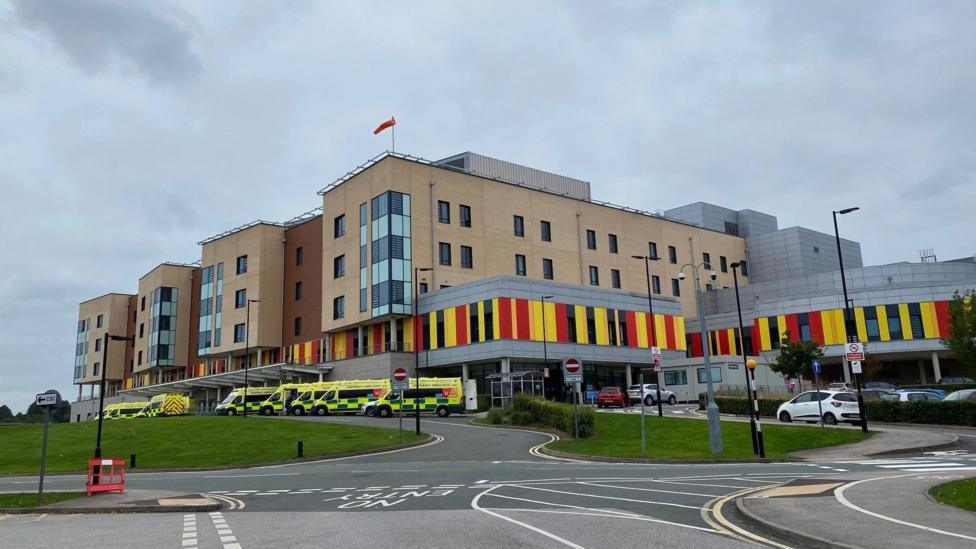Hospital could be heated by burning rubbish

The current energy-from-waste plant is due to be replaced at the end of the decade
- Published
Burning rubbish could help to heat Staffordshire's main hospital amid plans for a new incinerator.
Proposals are being drawn up for the Royal Stoke University Hospital to receive both heat and electricity from a planned Energy Recovery Facility at Hanford, which is due to replace the existing waste incinerator by the end of the decade.
Bosses at University Hospitals of North Midlands (UHNM), which runs Royal Stoke, said the scheme would help protect the hospital site from spiking global energy prices and reduce its carbon emissions.
UHNM has been speaking to Stoke-on-Trent City Council and SSE Energy Solutions Ltd about the proposals.
The council has been developing a district heat network since 2014 to distribute heat to homes and businesses via a system of underground water pipes, the first 2.5 miles (4km) of which have been installed in Stoke and Shelton.
A geothermal well has been proposed as the main source of heat but the local authority has also been looking at linking the network to other heat-producing sites, such as the Energy Recovery Facility.
In a report to the UHNM board, chief executive Simon Constable said the scheme would bring numerous benefits, including "reducing emissions and protecting against energy market volatility".
"The scheme will also create local jobs and deliver social value for the residents of the city," he added.
According to a previous council report, the replacement Energy Recovery Facility has the potential to generate about 320 GWh of electricity and 400 GWh of heat, which could meet all the council's needs and generate £50m annually in commercial sales.
This news was gathered by the Local Democracy Reporting Service.
Get in touch
Tell us which stories we should cover in Staffordshire
Follow BBC Stoke & Staffordshire on BBC Sounds, Facebook, external, X, external and Instagram, external.
Related topics
More stories like this
- Published8 May

- Published14 March
